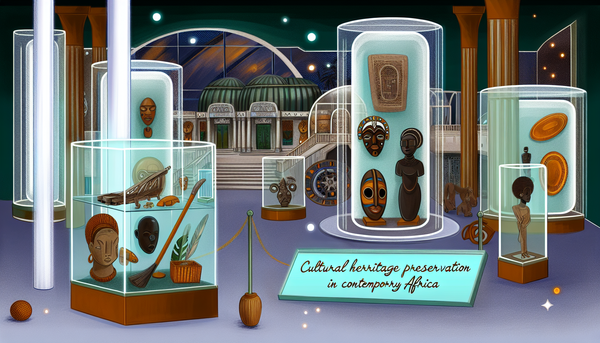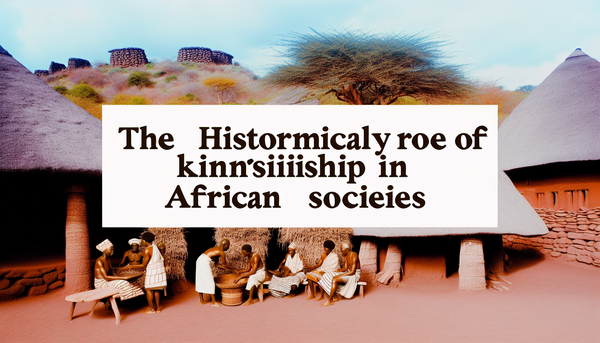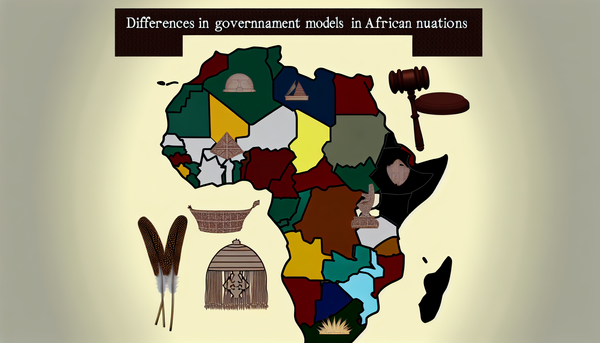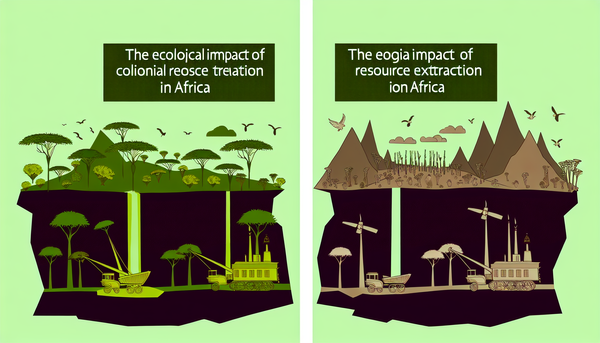The Evolution of African Languages and Their Importance
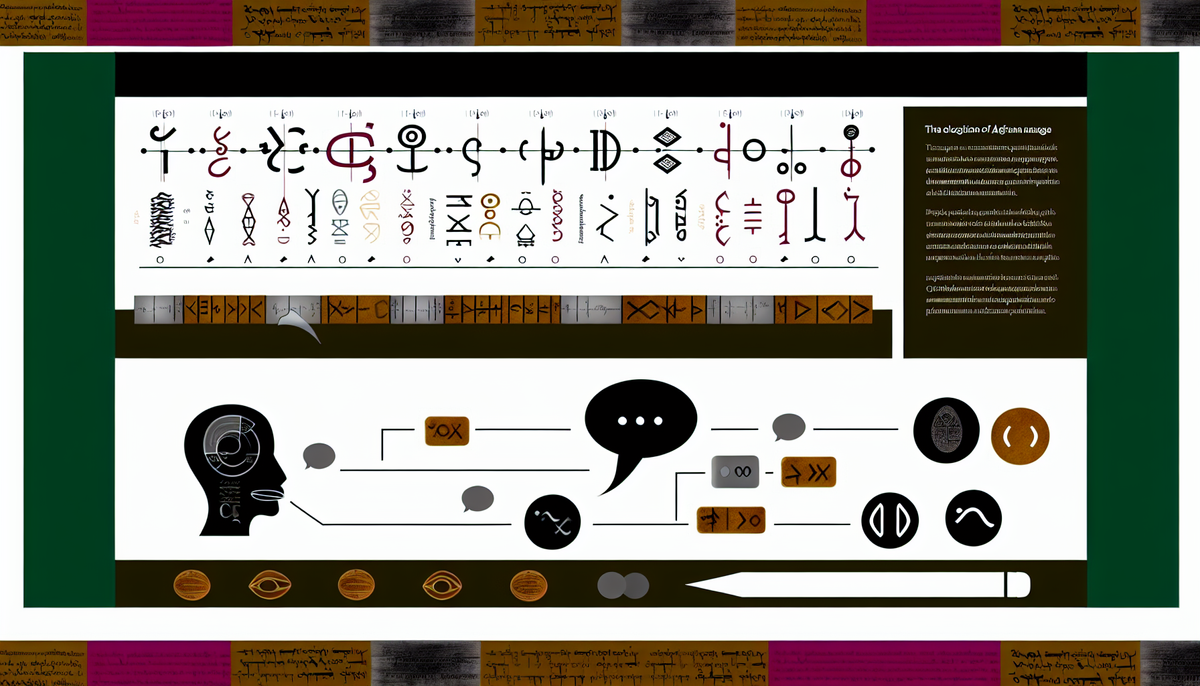
Historical Overview of African Languages
African languages have a rich and diverse history, shaped by centuries of cultural and historical influences. The continent is home to over 2,000 distinct languages, belonging to several language families such as Niger-Congo, Afro-Asiatic, Nilo-Saharan, and Khoisan. These languages have evolved over time through contact with various civilizations, migrations, and trade.
Prior to colonialism, many African societies had developed sophisticated linguistic systems to communicate and document their traditions, knowledge, and beliefs. However, the arrival of European colonizers in the 19th century led to the imposition of European languages like English, French, and Portuguese, causing a decline in native languages.
Despite this, African languages have resiliently survived and continue to play a vital role in preserving cultural identities and oral traditions. Efforts to revive and promote indigenous languages have gained momentum in recent years, emphasizing the importance of linguistic diversity in maintaining Africa's heritage and fostering a sense of pride and unity among its people.
Cultural Significance of Linguistic Diversity
Linguistic diversity in Africa is deeply intertwined with the continent's rich cultural tapestry. Each language carries within it a unique set of values, customs, and traditions passed down through generations. The multitude of languages spoken across Africa reflects the diversity of its people, their histories, and their ways of life.
Language is not just a means of communication but a cornerstone of identity, defining an individual's sense of belonging and connection to their community. The preservation of African languages is crucial for maintaining this cultural heritage and ensuring that the stories and knowledge of the past are not lost.
Moreover, linguistic diversity fosters mutual respect and understanding among different ethnic groups, promoting a spirit of inclusion and unity. By embracing and celebrating the array of languages spoken on the continent, African societies can strengthen their cultural resilience and promote intercultural dialogue. Language is not just a tool for communication; it is a reflection of the soul and spirit of a people, embodying their unique experiences and worldview.
Impact of Colonialism on Language Evolution
Colonialism had a profound impact on the linguistic landscape of Africa, leading to significant changes in language usage and evolution. European colonizers imposed their languages on African populations for administrative and educational purposes, resulting in the marginalization and suppression of indigenous languages.
The dominance of colonial languages like English, French, and Portuguese led to a decline in the use of native African languages in official settings, schools, and media. This linguistic hierarchy reinforced power dynamics between colonizers and the colonized, with European languages often being associated with prestige and modernity, while African languages were relegated to inferior status.
As a consequence, many African languages faced the threat of extinction as younger generations favored learning the languages of the colonizers. This process of language shift and loss has had lasting effects on African societies, eroding cultural identities and weakening intergenerational transmission of knowledge and traditions.
Despite these challenges, efforts are being made to reclaim and revitalize indigenous languages, recognizing the importance of linguistic diversity in preserving Africa's cultural heritage and fostering a sense of pride and unity among its people.
Modern Revitalization Efforts of Indigenous Tongues
In recent years, there has been a growing recognition of the importance of preserving and revitalizing indigenous African languages. Various initiatives and programs have emerged to support the resurgence of native tongues and promote linguistic diversity across the continent.
One key aspect of modern revitalization efforts is the establishment of language schools, cultural centers, and community programs that focus on teaching and promoting indigenous languages. These initiatives aim to provide resources and platforms for individuals to learn and use their ancestral languages in daily life.
Furthermore, governments and educational institutions are increasingly integrating indigenous languages into formal education curricula, recognizing the value of multilingualism in promoting cognitive development and cultural understanding among students.
In addition, digital technologies and social media platforms have played a significant role in advancing the visibility and accessibility of African languages, enabling speakers to connect, share resources, and create content in their mother tongues online.
Through these collective efforts, communities are reclaiming their linguistic heritage and celebrating the richness of their cultural diversity, ensuring that African languages continue to thrive and evolve in the modern world.
Role of African Languages in Education
African languages play a crucial role in shaping educational experiences and fostering inclusive learning environments across the continent. While colonial languages have historically been favored as mediums of instruction, there is a growing recognition of the benefits of using indigenous languages in education.
Research has shown that children learn best when taught in their mother tongue, as it enhances their cognitive development, linguistic skills, and overall academic performance. Incorporating African languages in schools not only helps preserve cultural heritage but also empowers students to engage more deeply with their learning materials and connect with their communities.
Furthermore, promoting multilingual education that includes both indigenous languages and international languages can bridge linguistic divides, promote equality, and ensure that all students have equal access to quality education.
By valuing and integrating African languages into educational systems, countries can promote linguistic diversity, cultural pride, and academic success among their youth, paving the way for a more inclusive and vibrant educational landscape in Africa.
Influence on Literature and Media
African languages have made significant contributions to the literary and media landscape, enriching cultural expressions and storytelling traditions. Writers, poets, and filmmakers across the continent draw on the unique nuances of their native languages to create works that resonate with authenticity and depth.
Literature in African languages reflects the diverse experiences, histories, and worldviews of different communities, providing a platform for marginalized voices to be heard and celebrated. Through novels, poems, and plays written in indigenous languages, writers capture the complexities of African societies and explore universal themes of identity, love, and social change.
In the realm of media, the use of African languages in film, music, and digital content has played a crucial role in diversifying representation and challenging dominant narratives. By incorporating local languages into storytelling, filmmakers and content creators are able to authentically depict the cultural richness and linguistic diversity of the continent.
Overall, the influence of African languages on literature and media not only enhances artistic expression but also fosters a deeper understanding and appreciation of Africa's rich heritage and vibrant storytelling traditions.
Future Trends in Language Preservation
The future of language preservation in Africa is increasingly shaped by innovative approaches and evolving trends that aim to safeguard linguistic diversity for generations to come. One promising trend is the integration of technology in language documentation, revitalization, and dissemination efforts. Digital tools and platforms facilitate the creation of online language resources, interactive learning materials, and collaborative projects that support the preservation and promotion of indigenous languages.
Another key trend is the emphasis on intergenerational transmission of language skills within families and communities. Recognizing the pivotal role of parents, elders, and community members as language custodians, initiatives are being developed to encourage language use in daily interactions and promote language learning across all age groups.
Furthermore, there is a growing recognition of the value of multilingualism in education and society, leading to policies and programs aimed at promoting the use of African languages in formal settings and public spaces. By embracing and celebrating linguistic diversity, African countries can cultivate a strong sense of cultural pride and unity while ensuring the preservation of their rich linguistic heritage for future generations.
